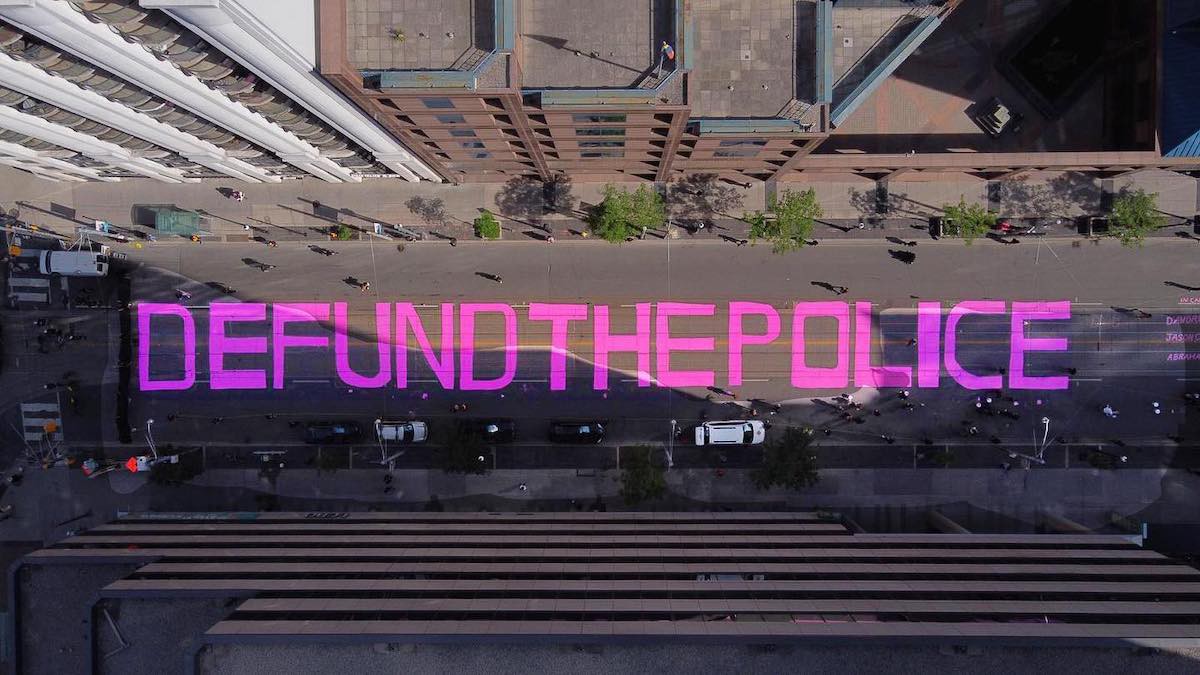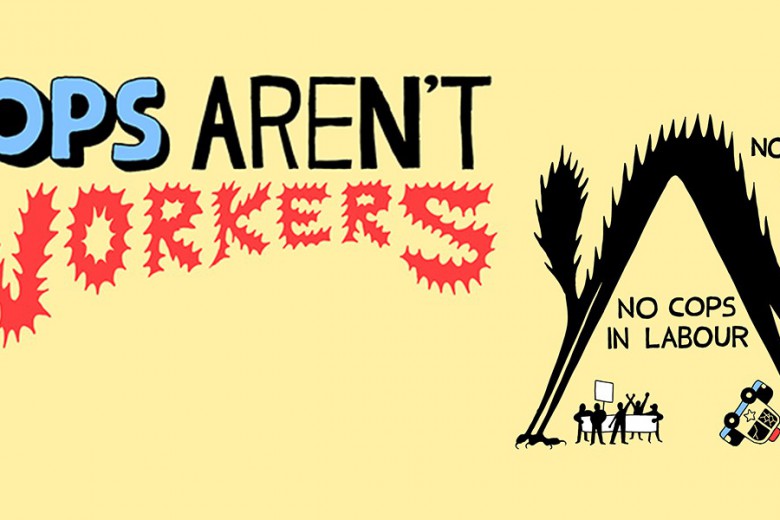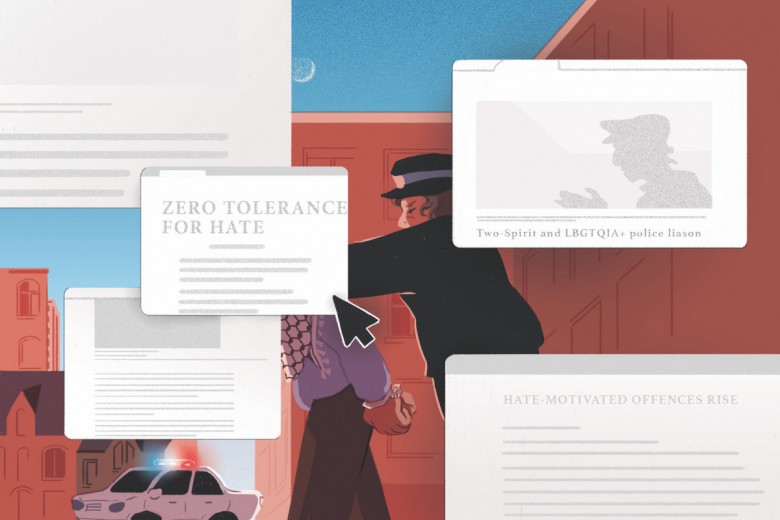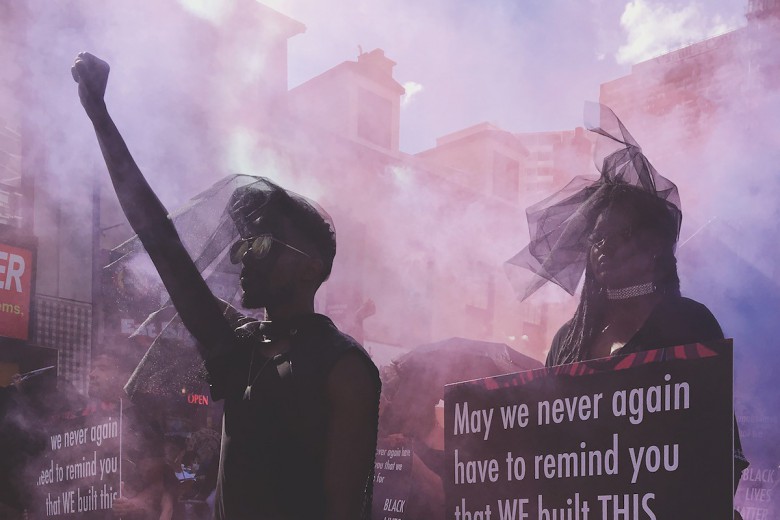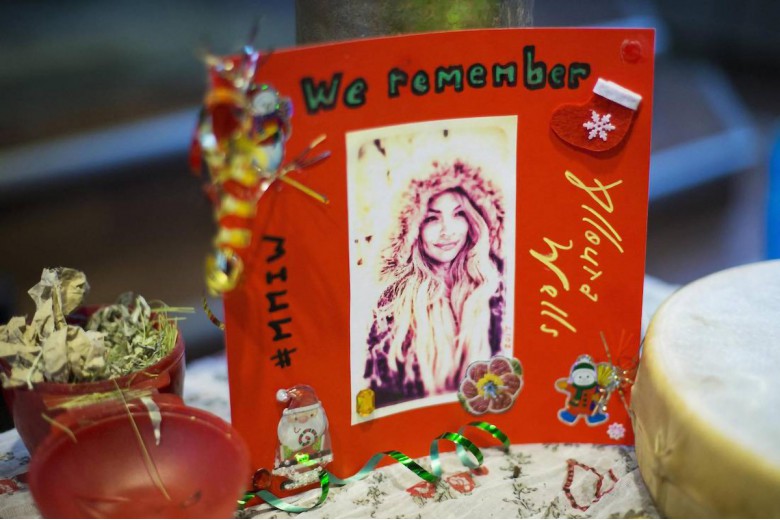A few days ago, I watched a TV interview with Desmond Cole, author of The Skin We’re In: A Year Of Black Resistance And Power and a longtime anti-policing organizer in Toronto. The white news anchor asks him, “You’re the second guest of mine to talk about defunding the police as a solution to bring about change. What does that mean? What does that look like?” Cole pauses, grins, then says, “Not to be glib, but ‘defunding the police’ means ‘defunding the police.’”
In the past few weeks of Black liberation uprisings, rivers of ink have been spilled over the question, “what does defund the police really mean?” The conspiratorial whisper of “really” implies that there’s some secret meaning buried below the surface of the demand. And it encourages police abolitionists to use complicated, technocratic language to water down our demand.
It has the same genius simplicity, the same three-word punch when chanted, as “Black Lives Matter” and “stop killing us.”
But “defund the police” means “defund the police,” and Cole was refusing to play along with liberals’ confusion and consternation over the demand. In doing so, he retained what makes the demand powerful – its clarity. It’s not wrapped up in sterile policy language; it doesn’t include any caveats or limits; it gestures toward and moves us concretely forward in the ultimate project of police and prison abolition. It’s a demand that’s easy to understand and easy to fight for, which is important because we’ll need a lot of people to help us win it. It has the same genius simplicity, the same three-word punch when chanted, as “Black Lives Matter” and “stop killing us.”
It doesn’t mean buying body cameras or any other new technology. It doesn’t mean hiring more cops for diversity and inclusion units. It doesn’t mean banning choke-holds. It doesn’t mean using tasers instead of guns. It doesn’t mean “community policing” that installs more cops in poor and racialized communities. For hundreds of years these reforms have only increased police forces’ power and resources.
Give the money to life-affirming Black- and Indigenous-led community projects, and build something beautiful from the ashes.
It means take the money away from the police. Take the guns and tanks and helicopters away from them. Take away their role as our catch-all hotline for responding to people in crisis. Close the police stations and dissolve the police force. Give the money to life-affirming Black- and Indigenous-led community projects – like affordable housing, Indigenous food security, transformative justice, and safe injection sites – and build something beautiful from the ashes.
Of course, the demand can and will still be co-opted – by liberal policy wonks, by corporations, by governments, and by the police themselves. “The term defunding, I think, is a bit of a misnomer,” Jim Hart, chair of the Toronto Police Services Board, told CBC. “Generally speaking, the conversations I’ve heard out there are more about where should we put our money.” As we’ve already begun to see in Toronto and Los Angeles, proposals that leave 90 per cent of the city’s billion-dollar budget intact – or even simply cancel a planned increase – will be deemed radical.
And, in addition to refusing to retreat, we must push forward. That means uprooting anti-Black and anti-Indigenous racism from within the institutions that we hope to turn to after the police are gone – social work, education, and healthcare. Defunding the police is one step toward abolishing the police. And abolition is not simply a demand to be won; it is the absolute horizon of freedom for us all.


